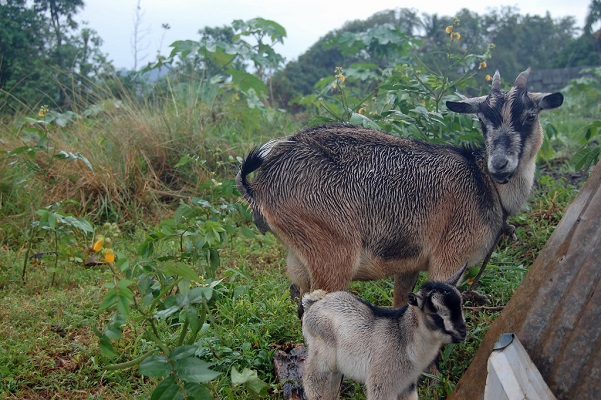

The rains either come with Joy or lamenting to farmers. In fact, unless farmers take immediate steps, they may end up losing many of their animals that they intend to sell.
It is now a long wet season and animals are susceptible to so many challenges that if a farmer is not careful, they may be killed by these diseases. This is what you have to look out for.
Leaking shades
When water leaks into the shade, it affects the animals’ comfort. It does not matter whether you are keeping chicken, goats, pigs or cattle, etc. If the shade was not clean enough, the water leads to production of chemicals such as ammonia, which affect the eyes of animals, especially if it has no proper ventilation.
It also causes irritation in the body. It is why the animals’ eyes swell. Another disease called coccidiosis also occurs as a result of water leaking onto dirty shades.
The best way to avoid this is to make sure that the shade does not leak and that it is always clean. If you are keeping goats, you need to take even an extra effort to keep their hooves away from water. Water causes rotting hoof diseases among goats.
More grass is not so good
When the rains come, new young grass sprouts up. This is very good for the animals. Animals easily pick at the soft grass and eat it up in big quantities.
It is, however, worth noting that this grass has a lot of water and little fibre, which is not good for the animal. Animals need fibre for proper digestion. The water fills up the stomachs and yet it is virtually useless. This is why it is common to see animals passing watery dung during wet seasons. What animal keepers should do is to harvest/cut some of this young grass and dry it up when there is sunshine. It will reduce the water in the grass hence turn it into a good feed.
More moisture, more bacteria
The moisture on the ground produces a lot of bacteria that can cause disease. The most common of them being worms. During the wet season, therefore, farmers must stock a broad spectrum of de-wormers. Worms, if not treated, affect the animals general performance. De-worming must be done at the beginning of the rainy season and throughout the season because worms multiply more during this period.
Ticks have a field day in the wet
Ticks are one of the most economically destabilising goat pests. They also spread faster during the rainy season too. If not treated, ticks can suck goats dry and eventually lead to death because they spread a disease called East coast fever.
In addition, there are more flies during the wet season too. Some of the flies are just inconveniencing because they do not bite, but simply fly around the goats, thus inconveniencing it. Farmers should make sure that they spray their animals regularly and cut all bushes near their shades.
 Contact Jaguza Support
Contact Jaguza Support